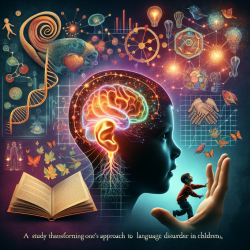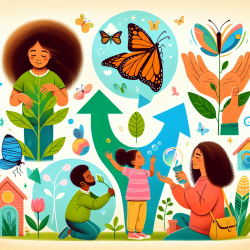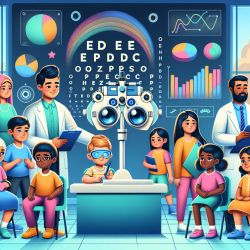Key Findings from the Research
The study by Griffiths et al. (2022) tested the mutualistic coupling theory, which posits that language and non-verbal reasoning skills influence each other's growth. Here are the main takeaways:- Children with higher initial language abilities showed greater growth in non-verbal reasoning and vice versa.
- Mutualistic coupling was equally strong in children with language disorders and those without.
- Early language disorders have downstream effects on other cognitive abilities, challenging the notion of selective language impairments.
Implications for Practitioners
These findings have several important implications for speech-language pathologists working with children:1. Holistic Assessment
Given the mutualistic relationship between vocabulary and non-verbal reasoning, it's crucial to assess both areas comprehensively. This will help in identifying any underlying issues that may not be immediately apparent.
2. Integrated Interventions
Traditional interventions often focus solely on language skills. However, this research suggests that improving language skills could also enhance non-verbal reasoning abilities. Therefore, incorporating activities that stimulate both verbal and non-verbal skills could be more effective.
3. Early Intervention
The study underscores the importance of early intervention. Addressing language disorders early on can have a positive ripple effect on other cognitive abilities, making a strong case for early screening and intervention programs.
4. Avoid Exclusion Based on Non-Verbal IQ
Historically, children with low non-verbal IQ have been excluded from language interventions. This study challenges that practice, suggesting that these children could benefit significantly from such interventions.
Encouraging Further Research
While this study provides compelling evidence, it's essential to continue exploring this mutualistic relationship. Future research should aim to:- Investigate mutualistic coupling between other language abilities, such as grammar, and reasoning skills.
- Explore the impact of different types of interventions on both language and non-verbal reasoning skills.
- Examine whether mutualistic coupling exists in children with other neurodevelopmental disorders.
Conclusion
The research by Griffiths et al. (2022) offers valuable insights that can revolutionize how we approach language disorders in children. By adopting a holistic, integrated, and early intervention approach, we can create better outcomes for children with language disorders.To read the original research paper, please follow this link: Mutualistic coupling of vocabulary and non-verbal reasoning in children with and without language disorder.










